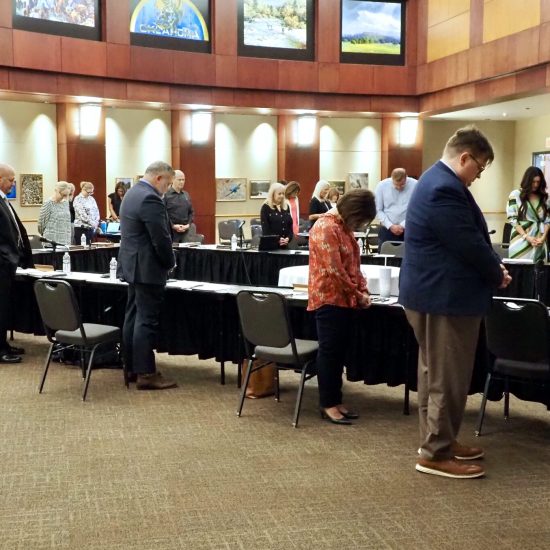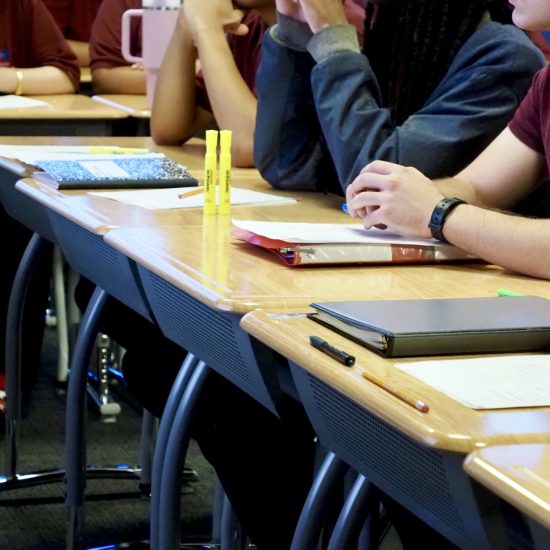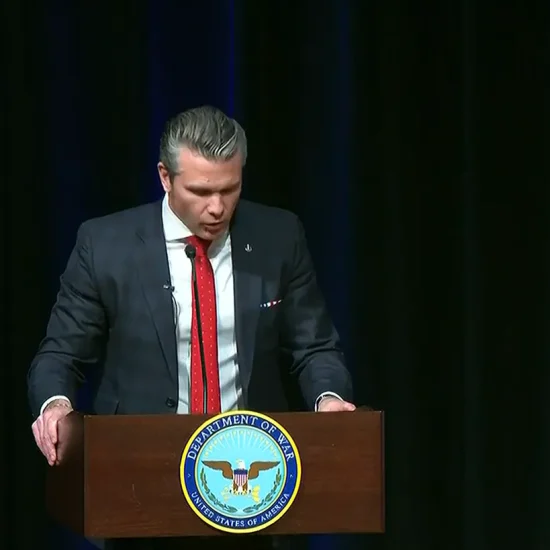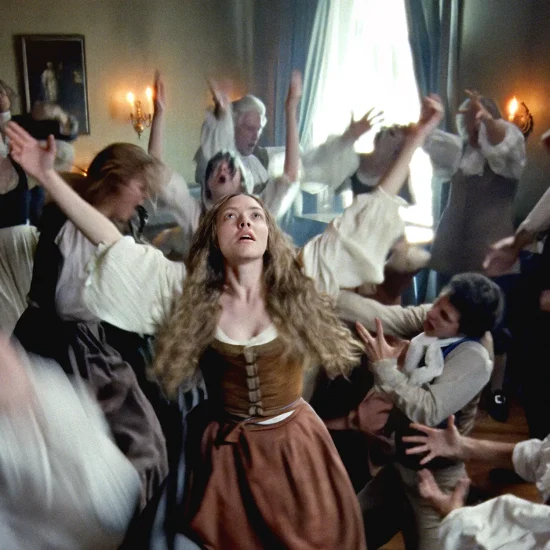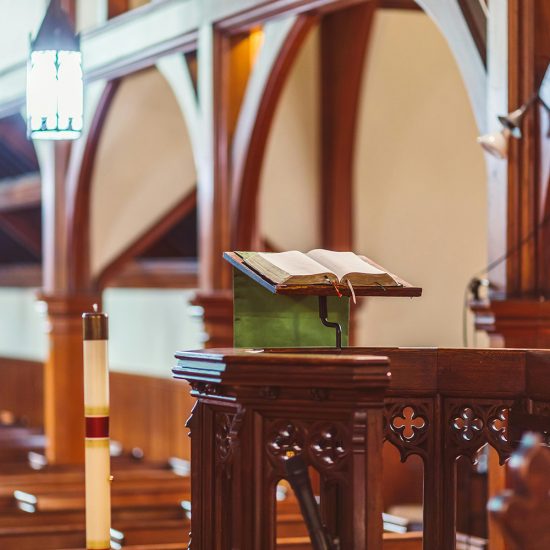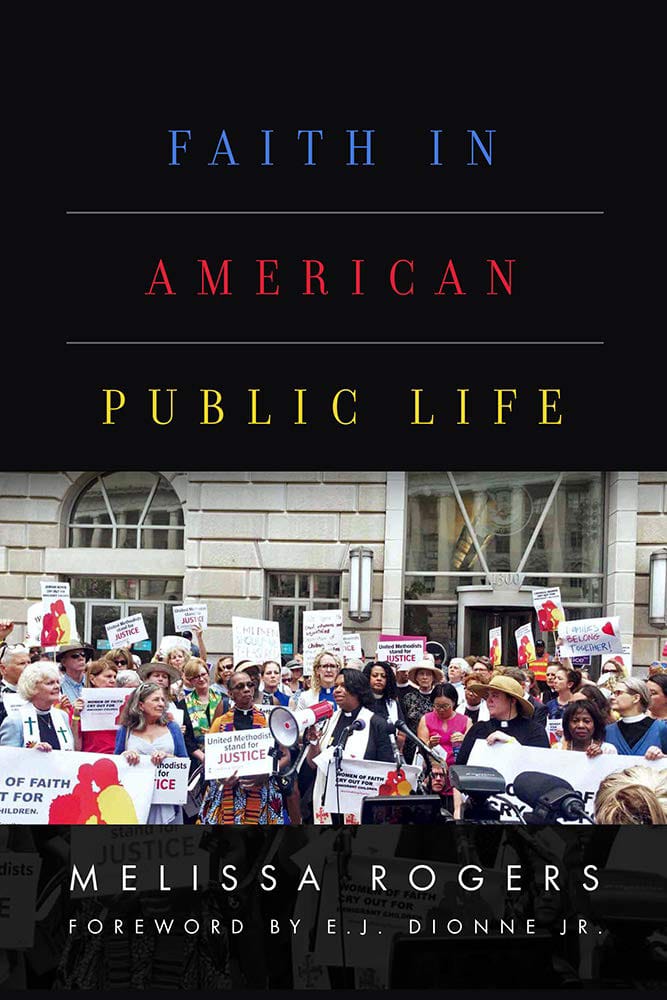
A Baptist expert in church-state issues who previously led White House faith-based efforts says governments can impose mass gathering bans to temporarily restrict church gatherings during the coronavirus pandemic. Melissa Rogers, a Baptist attorney and author of a new book on faith in public life, addressed various current religious liberty issues in the latest episode of the Word&Way podcast “Baptist Without An Adjective.”
As of May 7, more than 4.2 million people globally have been infected with the COVID-19 respiratory disease caused by coronavirus, and more than 286,000 have died. In the U.S., the nation with the most infections and deaths, more than 1.3 million people have tested positive and 81,000 have died.
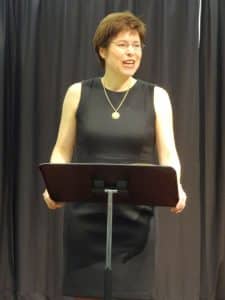
Melissa Rogers speaks at the 2017 gathering of the North American Baptist Fellowship in Falls Church, Virginia. (Brian Kaylor/Word&Way)
Rogers, who served as the executive director of the White House Office of Faith-Based and Neighborhood Partnerships during President Barack Obama’s second term, is an attorney who previously worked on church-state issues at the Baptist Joint Committee and elsewhere. Rogers is the author of the new book Faith in American Public Life, published last fall by Baylor University Press.
Rogers has been tracking lawsuits across the country as individuals and churches challenge state and local coronavirus restrictions that prevent churches from holding in-person services. And she sees a general principle that allows such bans.
“My position has been that the government can and should temporarily ban mass in-person gatherings — including religious gatherings — for a time because of the pandemic. The highly contagious nature of it, the lack of testing and tracing just makes that essential,” Rogers explained. “The applicable law allows government leaders to place that kind of temporary ban on mass in-person gatherings as long as they’re across the board and done without bias.”
“We’re in an extraordinary time because if we were in an ordinary time, for the government to tell houses of worship that they cannot hold worship services would be entirely unacceptable,” she added. “But we’re not in an ordinary time. We’re in an extraordinary time. So, we have to balance public health and religious liberty differently than we would normally do so.”
And considering these unusual times, Rogers said a lot of government officials and religious leaders deserve praise for “really turning on a dime” to adapt when the outbreak erupted. Many government officials, she noted, are “getting kind of shot at from all sides” as they make critical decisions “under tremendous pressure.” Thus, she said she tries “whenever possible to extend some grace to them because I know they’re doing a difficult job and trying to do it as well as they can.”
Rogers particularly praised several governors, such as Maryland’s Larry Hogan, Massachusetts’s Charlie Baker, New York’s Andrew Cuomo, and Virginia’s Ralph Northam. She praised them for their leadership based on years of experience, and for showing “their own humanity” during the crisis.
Rogers also singled out a couple of officials for criticism: U.S. District Judge Justin Walker in Kentucky and New York City Mayor Bill de Blasio. She critiqued Walker, who has been nominated to a federal appeals court, for “rhetorical fireworks” in a ruling involving drive-in church services in Louisville. And she criticized de Blasio for saying that houses of worship that didn’t follow the coronavirus restrictions could find their buildings closed “permanently.”
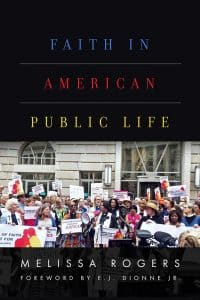
Faith In American Public Life by Melissa Rogers
Beyond church-state issues, Rogers also thinks this time is showing systemic issues in the U.S. that need to be addressed.
“What this has exposed,” she said, “is that there are so many people who were already struggling to keep life and limb together, and now have just been walloped by this thing — even if they don’t themselves have it, but because they’ve lot their job or their family member has it. And it just exposes a horrific ragged edge of our society that has to be mended.”
“Like so many of us, that’s just on my heart and mind every day — thinking about people who are not as fortunate,” she added. “How can we make this time a time where we actually shift some of the way we think about things and the way we do things, so that people aren’t as vulnerable as they are now?”
Lawsuits across the country challenging mass in-person gathering bans impacting religious services have mostly failed to find support from judges. Courts have denied challenges by religious plaintiffs in California, Illinois, Kentucky, New Hampshire, and Virginia, while judges in Kansas and a second case in Kentucky granted temporary injunctions to block orders limiting the size of church services. Several of those cases have involved Baptists as plaintiffs, including in Kansas, Kentucky, and New Hampshire.
A new poll found that 48% of Americans say church services shouldn’t be allowed right now because of the potential of spreading coronavirus, while 42% believe they should be allowed with restrictions, and just 9% think they should be allowed without restrictions.
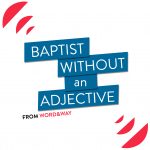 NOTE: Hear more about this topic from Rogers — and her thoughts on several non-coronavirus church-state issues — in the latest episode of Word&Way’s award-winning podcast “Baptist Without An Adjective.”
NOTE: Hear more about this topic from Rogers — and her thoughts on several non-coronavirus church-state issues — in the latest episode of Word&Way’s award-winning podcast “Baptist Without An Adjective.”


